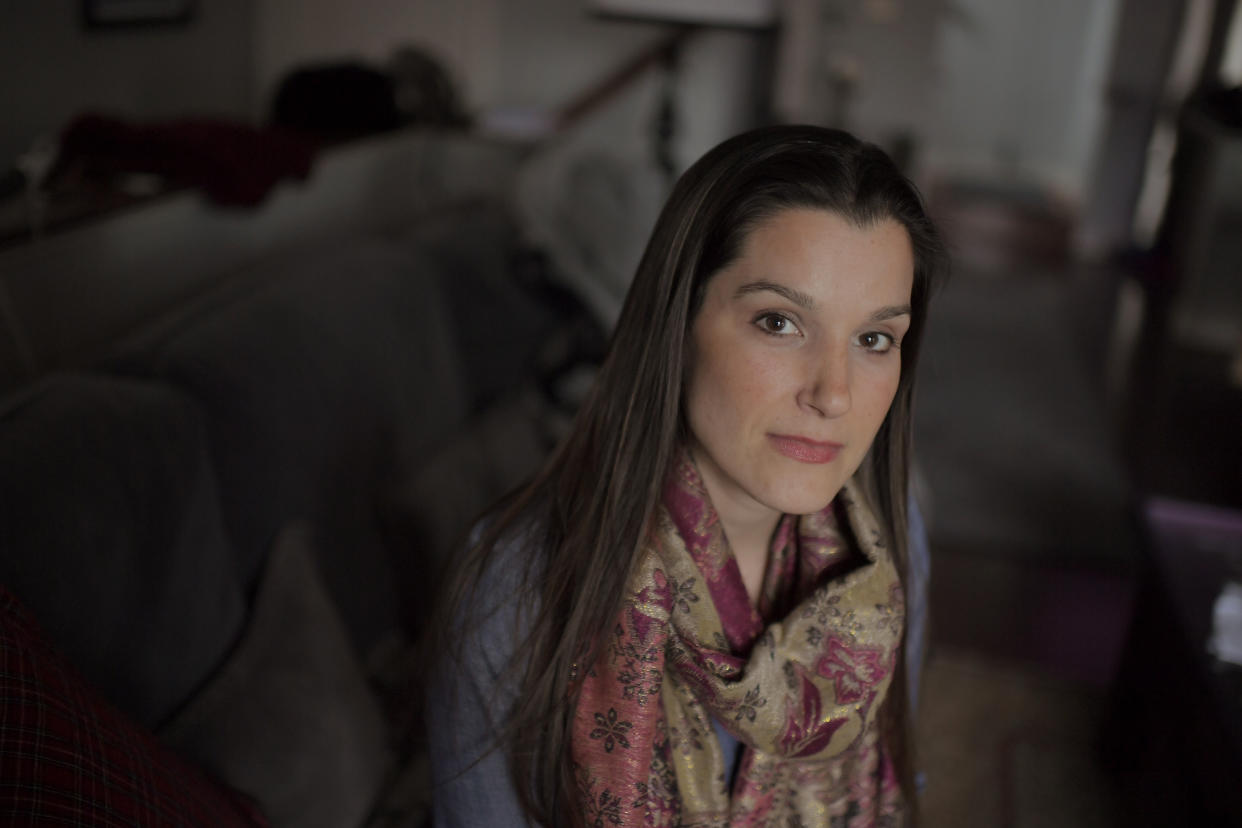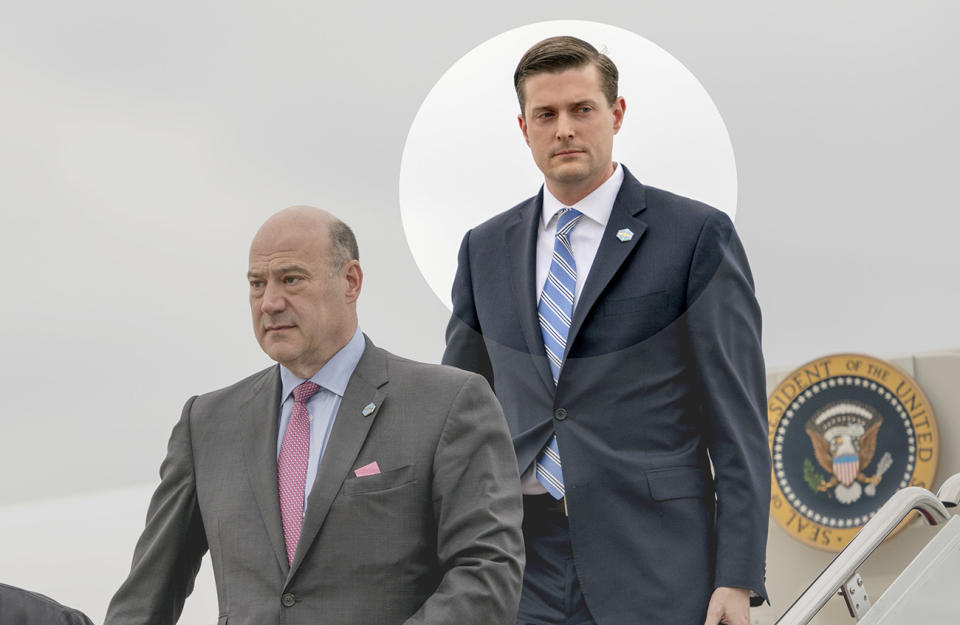Women are rallying to support Rob Porter's ex-wife

Former White House aide Rob Porter rose to infamy this week after he abruptly resigned amid public allegations of abuse from his two ex-wives.
Colbie Holderness, Porter’s first wife, and Jennifer Willoughby, his second wife, both told the Daily Mail that they divorced Porter after he verbally and physically abused them.
Now an essay Willoughby wrote on her website in April 2017 has surfaced. It’s titled simply, “Why I Stayed,” and while Willoughby doesn’t specifically name Porter in the essay, it’s pretty apparent who she’s talking about.
In the essay, Willoughby details how Porter first called her a “fucking bitch” on their honeymoon. A month later, she says, he “physically prevented” her from leaving the house, and two months after that she filed a protective order against him because he punched a hole in the glass of their front door while she was locked inside. “We bought a house to make up for it,” she wrote. “Just after our one year anniversary, he pulled me, naked and dripping, from the shower to yell at me.”
Willoughby says that everyone “loved” Porter and regularly told her how lucky she was to be married to him. “But in my home, the abuse was insidious. The threats were personal. The terror was real. And yet I stayed,” she wrote.

Willoughby says she tried to get help, but was advised to consider how what she said might impact Porter’s career in politics. “I was told, yes, he was deeply flawed, but then again so was I,” she wrote. “And so I worked on myself and stayed.” She says it may have been easier to leave “if he was a monster all the time,” but that Porter could be “kind and sensitive.” Willoughby says he cried and apologized after his actions, offered to get help, and even went to a few therapy sessions — but that the abuse still continued.
“He belittled my intelligence and destroyed my confidence. And so I stayed,” she wrote. “I felt ashamed and trapped. And so I stayed. Friends and clergy didn’t believe me. And so I stayed.”
Willoughby points out that spousal abuse happens regardless of education, race, age, gender, and socioeconomic status. “My cycle continued for four more years,” she wrote. “Afterward, I let go and welcomed the hard work of healing and forgiveness. My experience made me stronger and able to love more deeply.”
The comments section of Willoughby’s post was flooded with people who shared similar stories of abuse. “This is my story, too, except I stayed for nine years,” one person wrote. “I kept telling myself ‘You’ll leave if he ever lifts a hand to strike you,’ convincing myself that he was right when he protested that he’d never in his life lifted a hand ‘to strike’ a woman.” “Sometimes, I wonder which is worse. Physical abuse or the verbal/emotional abuse, as I’ve experienced both in two different relationships,” another commenter said. “[I’m] leaning towards the verbal/emotional in my experiences. They really do rape you of everything you have.”
While the commenters’ stories were all slightly different, they were eerily similar as a whole. Licensed clinical psychologist John Mayer, author of Family Fit: Find Your Balance in Life, tells Yahoo Lifestyle that the vast majority of women in abusive relationships go through these experiences.
Willoughby and several others pointed out that they stayed because their partners apologized after certain instances — but that this is classic abusive behavior. “Abusers cry and apologize only when it serves to get them what they want,” Mayer says. “Key characteristics of abusive men is that they are sociopathic in that they have no true attachment or even understanding of social norms and rules, thus their relationship skills are ‘pseudo-skills’ a fa?ade of what a male in society should be and how a male in society and in a relationship should act — in a genuine way.”
Mayer underscores Willoughby’s point that abuse can happen to anyone, adding that people who are abused “need to hear this.”
If you find yourself in an abusive relationship, it’s critical to seek help, Mayer says. However, he warns, if the “helpers” give you advice like, “It will hurt his career,” or, “Having a child will make things better,” you’re reaching out to the wrong people.
It’s possible for an abusive partner to reform, but it takes a lot of intense work with a therapist who is strong, objective, and willing to confront aggressive behavior, Mayer says. It’s important for a therapist to help the whole family, not just the abuser or the target, he adds. And, of course, it’s ultimately up to the victim if they even want to stay in the relationship, whether the abuser reforms or not.
Despite the years of abuse she suffered, Willoughby doesn’t appear to hold a grudge against her ex. She ended her essay on this note: “My heart breaks for him. In the end, who is the real victim of his choices?”
